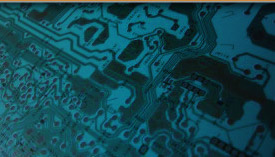

- Main Page
- Awards
- AAMAS 2026
- Previous AAMAS Conferences
- AAMAS Proceedings
- Related Conferences and Schools
- IFAAMAS Committees
- IFAAMAS Board of Directors
- Elections for Board of Directors
- IFAAMAS Charter
- IFAAMAS By-Laws
- Publication Ethics and Professional Conduct
- In Memoriam
Authorship
Anyone listed as author must meet all the following criteria:
- have made substantial intellectual contributions to some components of the original work described in the paper;
- have participated in drafting and/or revision of the paper;
- be aware that the paper has been submitted for publication;
- agree to accept responsibility for any issues relating to correctness or integrity of the work.
The author submitting a paper certifies on behalf of all authors that:
- the paper submitted is original, that the listed authors are the creators of the work, that anyone who contributed substantially to the paper is an author, that each author approves of the submission, that all authors agree to these conditions, and that the paper is an honest representation of the underlying work.
- the work submitted is not currently under review at any other publication venue, and that it will not be submitted to another venue unless it has been rejected or withdrawn from this venue. Making the work available as a technical report or on arXiv.org is permitted, since it does not constitute prior publication.
- any prior publications on which this work is based are documented appropriately in the paper. No portion of previous work should be included in a way that makes the previous work to appear as new work.
- intellectual property rights of others are respected (see Policy on Plagiarism for details).
- appropriate approvals have been obtained if the work involves the use of human or animal subjects.
- all funding for the work, if any, is acknowledged.
Plagiarism covers not only papers, but also misrepresentation of data, computer codes or other literal or creative expressions as one's own, and is a clear violation of professional ethics. Plagiarism can also represent copyright infringement, which is a violation of copyright laws in the U.S. and many other countries, punishable by statute.
Plagiarism manifests itself in a variety of forms, including:
- verbatim copying, near-verbatim copying, or intentionally paraphrasing portions of another author's paper without citing the source;
- copying elements of another author's paper, such as equations or illustrations that are not common knowledge;
- verbatim copying portions of another author's paper with citing but not clearly marking the text copied (e.g., not using quotation marks correctly) and/or not citing the source correctly.
All authors and co-authors are individually and collectively responsible for the content of papers. Hence, it is the responsibility of each author to ensure that papers attain the highest ethical standards with respect to plagiarism.
IFAAMAS is committed to organising the AAMAS conference and its affiliated events in an environment that is free of harassment for everyone involved: delegates, organisers, conference staff, and reviewers.
Some examples of harassment are:
- inappropriate comments related to gender, gender identity and expression, sexual orientation, disability, physical appearance, race, or religion;
- the use of inappropriate imagery in the conference environment (e.g., the use of sexual imagery in talks or in posters);
- intimidation, stalking, following, unwelcome physical contact, and unwelcome sexual attention;
- the use of overtly aggressive or intimidating behaviour or language.
All participants in IFAAMAS events are asked to embrace our intention to foster a harassment-free scientific community, and to understand that IFAAMAS will respond appropriately to incidents of harassment if they occur.
SAFE AAMAS VolunteersThe conference commits to appointing at least two trained volunteers who can act as a first point of contact in case of suspected harassment. These volunteers will be recognisable, introduced at the start of the conference, and present for the duration.
If you are the victim of harassmentIf you believe you are the victim of harassment at IFAAMAS or one of its affiliated events, or notice that someone else is being harassed, or have any other elated concerns, then please immediately contact either:
- one of the SAFE AAMAS volunteers;
- one of the conference chairs;
- an IFAAMAS official; or
- a member of the local organising committee.
IFAAMAS is committed to act appropriately and fairly to deal with
incidents of harassment, and above all, to ensure the personal safety
and well-being of everyone involved.